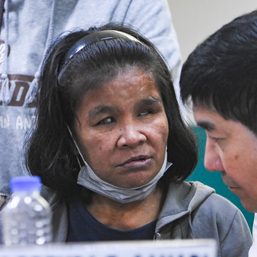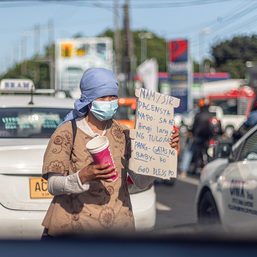SUMMARY
This is AI generated summarization, which may have errors. For context, always refer to the full article.

MANILA, Philippines – The Supreme Court (SC), in upholding a Court of Appeals (CA) decision, ruled that marital infidelity is considered a violation under the Republic Act (RA) No. 9262 or the anti-violence against women and their children act of 2004 (Anti-VAWC law).
In a decision dated March 1 and publicized on Tuesday, March 21, the High Court’s First Division upheld the conviction of a man who cohabitated with another woman and impregnated her, while his wife was working overseas. The decision, penned by Associate Justice Ramon Paul Hernando, denied the petition for review on certiorari filed before the High Court and upheld the January 31, 2019 and October 18, 2019 resolutions of the CA.
Earlier, the appellate court affirmed the conviction of the unnamed man in the Regional Trial Court (RTC) decision, which found him guilty of violating the section 5 of the anti-VAWC law. Section 5 (i) of RA No. 9262 states “causing mental or emotional anguish, public ridicule or humiliation to the woman or her child, including, but not limited to, repeated verbal and emotional abuse, and denial of financial support or custody of minor children of access to the woman’s child/children.” Psychological violence is also defined in section 3.
In its ruling, the High Court said all the elements to establish the violation of section 5 (i) of the law were present. They are as follows:
- Offended party is a woman and/or her child/ children;
- Offended woman is either wife or former wife of the respondent;
- The respondent causes emotional anguish to the woman or children;
- The anguish is caused through public ridicule or humiliation, repeated verbal or emotion abuse, denial of financial support, among others.
The SC also noted that the prosecution was able to establish the man’s infidelity, his cohabitation with another woman whom he had a child, and his abandonment of his own wife. The High Court even noted the testimony of the man’s child to his original wife.
“BBB’s (child) psychological trauma was evident when she wept in open court upon being asked to narrate petitioner’s infidelity. In particular, BBB explained that she was deeply hurt because her father had another family and loved another woman other than her mother.”
The High Court also noted that physical violence is the most visible form of abuse, but there are also other forms of violence such as sexual, psychological, and economic abuse.
What happened before
The SC said that according to court records, the man and his wife got married on December 29, 2006 and had a daughter. Two years later, in 2008, the wife flew to Singapore to work there. However, in May 2015, the wife found out her husband cohabitated with another woman and impregnated her.
The husband even brought the other woman to their hometown, prompting the wife to return home. The wife sought the Department of Social Welfare and Development’s assistance to get her daughter who was staying with her mother-in-law at that time.
In 2016, the husband was charged in the RTC for violation of section 5 (i) of RA No. 9262 after he was found guilty of “inflicting psychological violence against his wife and daughter through emotion and psychological abandonment.” The husband brought the case to the CA.
However, the CA ruled the husband’s petition had no merit. The appellate court added that contrary to the husband’s claim that he was only charged for deprivation of financial support to the child, the husband was also charged for the act of abandoning his family, which was also mentioned in section 5 (i) of the Anti-VAWC law.
Although the prosecution failed to establish that the husband denied his family financial support, the prosecutors was able to prove the husband abandoned his wife and child and caused them “mental or emotional anguish,” the CA added.
Later on, the husband filed a motion for reconsideration before the CA, but was also denied. This prompted the husband to bring the case to the SC. – Rappler.com
Add a comment
How does this make you feel?








![[Free to Disagree] Arrest Quiboloy!](https://www.rappler.com/tachyon/2024/03/Free-to-disagree-arrest-quiboloy-March-11-2024-1.jpg?resize=257%2C257&crop_strategy=attention)

![[OPINION] Unpaid care work by women is a public concern](https://www.rappler.com/tachyon/2024/07/20240725-unpaid-care-work-public-concern.jpg?resize=257%2C257&crop_strategy=attention)
![[DECODED] The Philippines and Brazil have a lot in common. Online toxicity is one.](https://www.rappler.com/tachyon/2024/07/misogyny-tech-carousel-revised-decoded-july-2024.jpg?resize=257%2C257&crop_strategy=attention)


![[OPINION] Why women seek divorce](https://www.rappler.com/tachyon/2024/06/TL-women-seeking-divorce-june-14-2024.jpg?resize=257%2C257&crop_strategy=attention)
There are no comments yet. Add your comment to start the conversation.